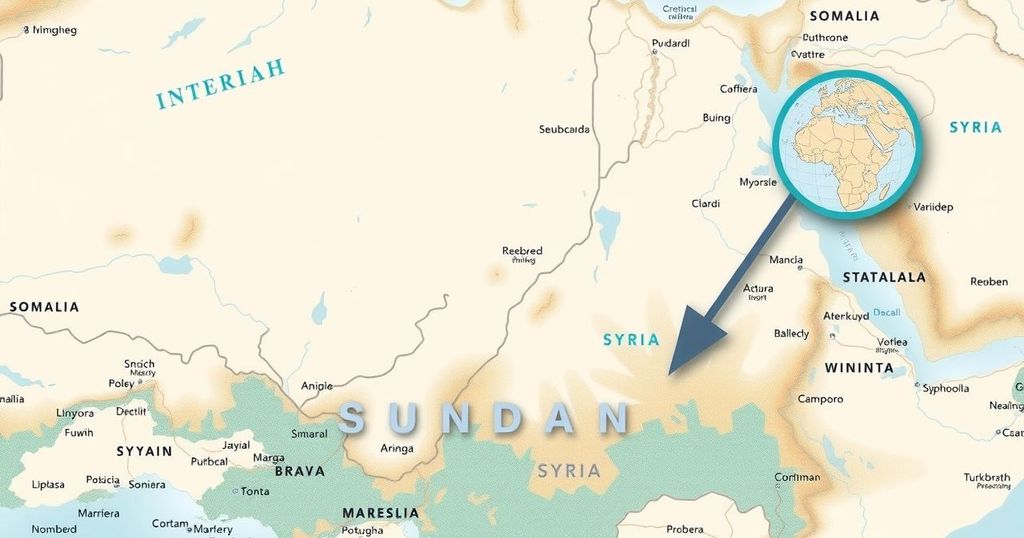The Trump administration and Israeli officials are considering resettling Gazans in Sudan, Somalia, and Syria as part of efforts to end the Israel-Hamas conflict. President Trump assures that no Palestinians will be forcibly removed. However, widespread criticism has emerged over the proposal, with many condemning it as ethnic cleansing due to the ongoing humanitarian disaster in Gaza.
The Trump administration, alongside Israeli officials, has shown interest in resettling Gazans in countries such as Sudan, Somalia, and potentially Syria. This initiative is part of a broader strategy aimed at concluding the conflict between Israel and Hamas and initiating reconstruction efforts in Gaza. President Trump has stated that no Palestinians are being expelled, emphasizing a humanitarian approach to resettlement.
During a February press briefing, President Trump suggested transforming Gaza into a prosperous region akin to the “Riviera of the Middle East,” while advocating for voluntary relocation of the 1.8 million Palestinians in Gaza to nations willing to assist. Senior Israeli officials have noted that Trump’s comments have motivated discussions regarding potential resettlement in other countries.
Three sources have confirmed that both the U.S. and Israel are engaging with Sudan and Somalia about resettlement options. Notably, there have also been attempts to reach out to Syria’s interim government through a third-party intermediary. However, as per official statements from Sudan and Somalia, no formal discussions regarding relocation have occurred.
Somalia’s ambassador to the U.S. expressed concerns that misinformation regarding resettlement proposals could have negative repercussions by potentially aiding extremist recruitment. The Sudanese government has yet to respond to inquiries related to this matter, while Syria’s interim leadership has not acknowledged any communications from Israeli or U.S. officials.
The humanitarian crisis in Gaza is dire, with the UN reporting over 90% of housing destroyed and significant loss of life due to ongoing conflicts. Trump’s assertions regarding Palestinians choosing to relocate have been met with criticism, with many denouncing the proposal as ethnic cleansing. In response, Arab leaders have collectively supported alternative reconstruction plans for Gaza.
Former President Biden’s administration had fostered discussions with the Syrian government prior to the current diplomatic lull. Following Trump’s February comments, Syrian officials condemned the resettlement proposal as a threat to regional stability. Advocacy groups have urged direct engagement with Syria’s new government to counteract influences from Iran and support humanitarian efforts.
Israel’s military actions against Syrian targets have raised tensions, particularly as they seek to neutralize threats from militant groups such as the Islamic Jihad. Meanwhile, U.S. officials, including Middle East envoy Steve Witkoff, are exploring various avenues for improving life for Palestinians in Gaza and may consider resettlement in several Arab states as part of this initiative.
The prospect of relocating millions of displaced Palestinians, many of whom are currently refugees in neighboring countries, raises significant ethical and logistical concerns. There is an increasing call among far-right Israeli factions to expand territorial claims through the displacement of Palestinians, reflecting deep-rooted historical conflicts.
Notably, Jared Kushner, a senior adviser during Trump’s administration, previously indicated that Gaza’s land could be integral to economic development and improving livelihoods. Recent reports by the Associated Press have highlighted ongoing negotiations involving the resettlement of Palestinians from Gaza to Sudan, Somalia, and additional regions.
In summary, the Trump administration, with Israel’s backing, is exploring the resettlement of Palestinians from Gaza in Sudan, Somalia, and potentially Syria. Despite the president’s assurances regarding voluntary relocation, substantial criticism has arisen, characterizing these efforts as potentially harmful and indicative of ethnic cleansing. The humanitarian crisis in Gaza continues to worsen, necessitating immediate international attention and cooperation to facilitate effective solutions.
Original Source: www.cbsnews.com






